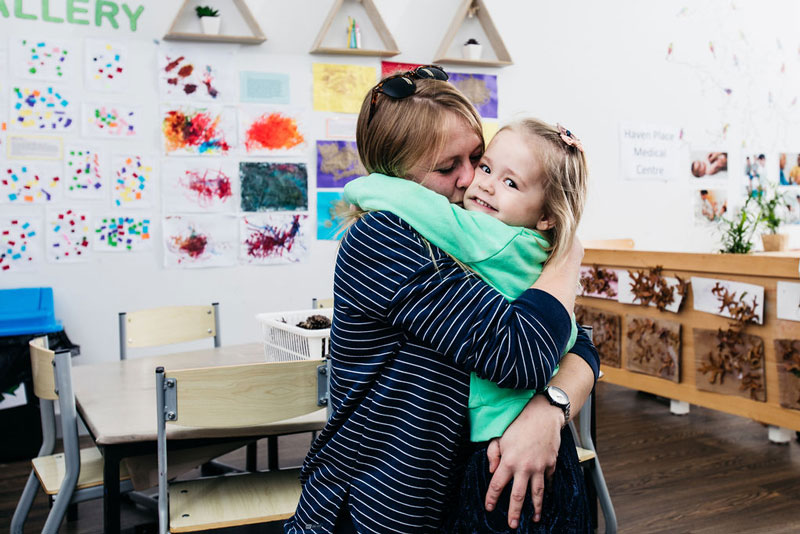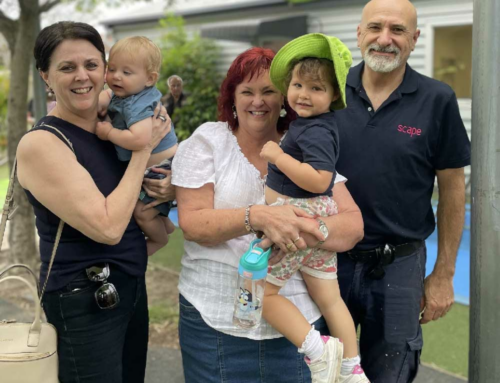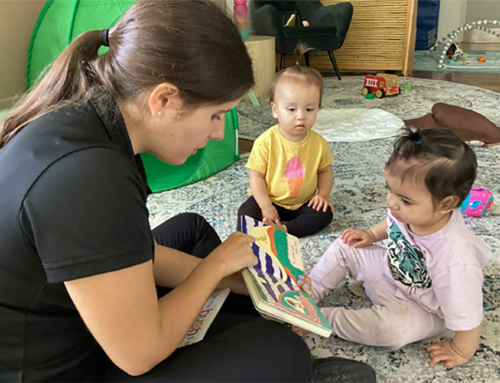Big life changes can be tough on anyone, but especially on young children. It can be incredibly challenging for young children who may not fully understand how to cope with change.
So how can you help your child navigate these changes and come out on the other side more resilient than ever?
Whether it is a divorce, a new job, a new school, a new home, or a new sibling, major life changes can create stressful situations for children at any age. However, young children are particularly vulnerable to stress and uncertainty.
Children need a safe and supportive environment during times of transition. They may not have the coping skills or emotional maturity to handle it independently. By understanding your child’s challenges and taking steps to help them cope, you can help them develop the resilience and flexibility they need to thrive in an ever-changing world.
In this article, we discuss:

How can we support children to cope with change?
Communicate with them clearly
One of the best things you can do for your child during a significant change is to provide open and honest communication.
Give them your undivided attention, explain the situation age-appropriately, and answer all their questions. You should also ask them how they feel and that you’ll will work through any challenges together.
Understandably, you may also be going through tough times and feeling emotionally drained. Reach out and ask for help if you need it.
Involve them in the process
Allowing young children to be involved in the change process can help them better understand what is happening and feel more in control of their daily life.
For example, when moving to a new home, you can take them along to see potential new houses or let them choose the decoration for their new room. Or, when welcoming a new sibling, they can help select baby clothes or help set up a space for the baby.
Maintain routines
Young children thrive on daily routines and familiarity, so sustaining habits during a life change can comfort them.
For example, try maintaining healthy meal times, bedtimes, and other rituals. It will help children with their sense of security.

Encourage the expression of feelings
Give your child the room to express their feelings; even negative emotions can help them cope with change. A parent can help a child label their emotions, sometimes we have feelings and we don’t know what they are.
For example, if they seem upset or anxious, encourage them to talk about their feelings or draw a picture of their emotions. You could read books with them about emotions. Give children your full attention, make eye contact and get down to their level.
Listening and encouraging children to express their emotions can help them feel heard and validated, easing the transition to new situations. At Petit Early Learning Journey we are guided by the Circle of Security as it provides a deep understanding of supporting children’s emotions.
Spend quality time together
Finally, make sure to spend quality time together as a family. Even if your schedules are disrupted, find ways to be together and enjoy each other’s company.
Spending time together can help reassure your child that no matter what changes may come, your family will always be there for each other.

What do we mean by big life changes?
- The arrival of a new baby or child.
- Transitioning to a new place, home or school.
- Coping with parents’ separation or divorce.
- Welcoming new step-parents and blended families.
- Illness in the family, including the child.
- Losing a loved one.
- Older siblings growing up and moving out.
1. The arrival of new siblings (including adoptions, legal guardianships and foster carers).
- Involve older children in the new baby’s care and routines.
- Encourage them to share or pass down age-appropriate toys, books, or clothes they no longer need.
- Plan special one-on-one time with older children to help them feel loved and important.
- Suggest to a close relative or friend if they can include older children in their gift giving too (such as books for all or a board game).
2. Child transitions.
- When it is time to say goodbye for the day at kindergarten or pre-school, create a bridge between their place of learning and home. A bridge could be a book, nursery rhyme or song. For example, read a couple of pages from a book together. Then read the rest when you are both back home.
- Establish morning and evening routines to prepare for the transition. Include plenty of time for rest, play, and preparing for school.
- When starting at a new school, familiarise your child with the new environment, such as visiting the school beforehand and meeting the teacher.
- If your child is experiencing anxiety they could try taking some deep breaths together to help bring their mind away from anxious thoughts and back to a safe place. Meditation is a helpful tool for calming anxiety.
3. Separation or divorce.
- Seek professional help or counselling if needed.
- Make sure the child knows they are loved and supported by both parents.
- Help them maintain regular routines and everyday activities to feel a sense of stability.
- Engage the support of educators at your child’s early childhood centre or school.
- Encourage children to express themselves through creative outlets such as drawing or writing.
4. New step-parents and blended families.
- Take some time before making huge adjustments so everyone can get to know each other better. Advance notice can help children to mentally and emotionally prepare themselves.
- Work out new expectations as a team. Include the children in the decision-making and give them a sense of agency by providing them with choices. Write down everyone’s roles and responsibilities and put them on the fridge or somewhere visible to the entire family.
- Be patient as everyone adjusts to new rules and boundaries.

5. Illness.
- Use picture books, games or art to help children understand what is happening to them or someone they love.
- Answer your child’s questions about the illness and how it impacts the future.
- Create a safe space where children can rant, rave, or relax when having difficulty coping with change. For example, children with mental health issues such as ADHD or autism spectrum disorder may find it more challenging to cope with changes.
- Plan ahead. Consider any triggers that might cause your child distress or anxiety disorders and reduce or eliminate these, if possible.
- Take time to look after your own physical and mental well-being.
6. Loss of a loved one.
- It can be challenging to talk to children about the death of a loved one, but honesty is always the best policy. Use concrete words like “died” instead of passed away.
- Use pictures, storybooks, toys and play to explain what has happened and how they feel.
- Children can sense grief from a very young age. Sharing how you feel can also help your child understand how they feel.
- Reassure your child that you love them and that you and they are safe and secure.
7. Older siblings growing up and moving out.
- Younger children can suffer from symptoms similar to empty-nest syndrome. They may miss their older sibling who has left home and even feel a sense of grief. Talking about how you feel may help them to open up about their feelings too.
- Even if a family member is absent, continue your daily routines and family traditions. For example, if you have a Sunday BBQ, continue to fire up the hot plate.
- Remind your younger children that older siblings moving out doesn’t mean they are gone forever. There will be plenty of future opportunities for everyone to catch up.
- Help your children regularly connect with face-to-face communication via video and voice calling.
Big life changes can be daunting, but with these tips, you can help your young child cope with a wide range of fears with greater ease and comfort.
Remember to communicate, involve them in the process, maintain routines, encourage the expression of feelings, and spend quality time together. Then, you’ll be able to help them build resilience and navigate life situations with grace and ease.

Partner with Petit Early Learning Journey to support your child’s wellbeing
It is so essential for children and families to have a sense of belonging to a supportive community, especially during difficult times. At Petit ELJ, being part of our local community enhances children’s health and happiness.
Our centre teams participate in fundraising, amplifying awareness for meaningful causes, and actively creating connections within our local community. We collaborate with local services, specialist supports, and agencies, so when our families need it, help is at hand.
Are you ready to learn how we can support your family and children’s education and care?






